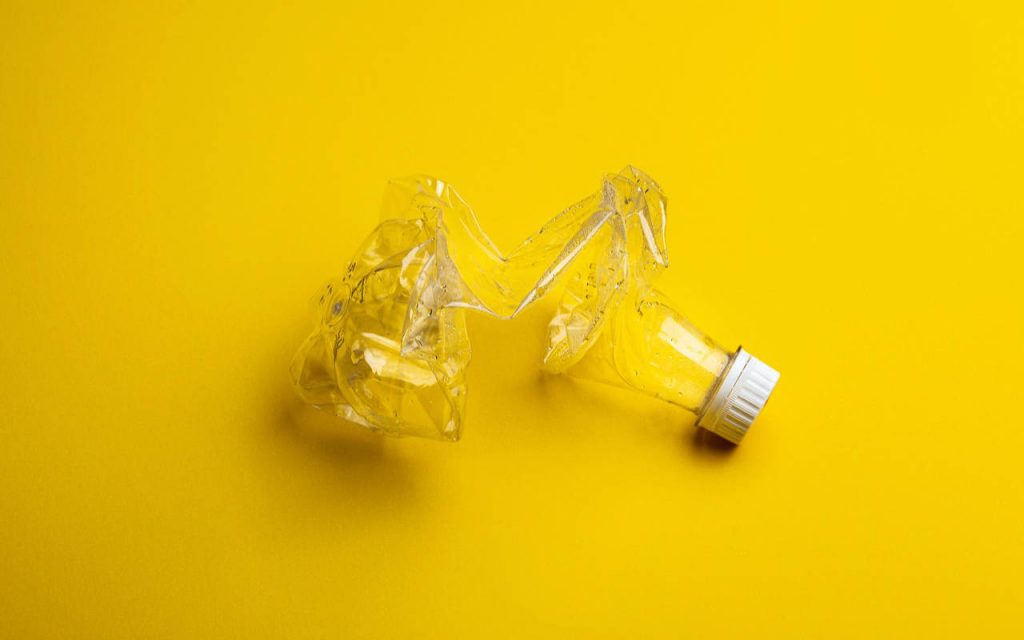
We all know the benefits of recycling – but plastic pollution is on the rise. How can that be, when everyone has a recycling bin?
Well – the fact is that not everybody recycles. Some regions have no recycling programmes to speak of, and some businesses don’t adhere to guidance on recycling (which isn’t enforced anyway).
So, we end up with lots of material that could be recycled going to landfill, or becoming litter. Invariably, that litter finds its way to the sea on the wind, or after being flushed into surface water drains.
But even the stuff that gets put in recycling bins can be doomed.
One of the biggest challenges with plastic recycling in the world today is sorting and standardisation. That’s because not all plastics are the same, and some can’t be recycled at all. But it all goes in the same bin, and that makes sorting even harder.
Read more: How is plastic recycled?
In an effort to make this process better, many (but still not all) plastics are labelled with their recyclability status – you might have seen some of them, like this:

But what does this mean?
What do the numbers on plastic mean?
There are seven types of plastic with the numbered symbol you see above. Each number corresponds to the material used to make that plastic:
1 – Polyethylene Terephthalate (PET)
This is what water and drinks bottles are made from. It’s one of the most common plastics in the world.
2 – High Density Polythene (HDPE)
Milk cartons, shampoo bottles and other “squeezy” bottles are generally made of HDPE. It’s also resistant to oils, alcohol and other solvents – so it is widely used outside of food and drink.
3 – Polyvinyl Chloride (PVC)
PVC is widely used in plumbing and heating, but it has countless uses: flooring, roofing, stationery, fashion and more.
4 – Low Density Polythene (LDPE)
This is what polythene bags, polythene sheeting and polythene packaging products are made from. This is the material that revolutionised storage, manufacturing and transport in just about every industry – from automotive to zoology.
5 – Polypropylene (PP)
This heat-resistant plastic is used for ready meal trays, hot food packaging and things like margarine and butter tubs.
6 – Polystyrene (PS)
Polystyrene’s hardness makes it useful for plastic cutlery and cups, but it can also be manufactured into a foam that’s excellent at absorbing impacts; this makes it useful for packing delicate items, as well as for crash helmets.
7 – Other
Plastics in the number 7 category are ALL other plastics, including:
- Polycarbonate
- PLA
- ABS
- Nylon
- Melamine
- Biodegradable plastic
Some of these can be recycled – but many can’t.
List of recyclable plastics
These common plastics can all be recycled, but some can only be processed at specialist facilities.
Easy to recycle
1 – Polyethylene Terephthalate (PET)
2 – High Density Polythene (HDPE)
5 – Polypropylene (PP)
Moderately easy to recycle
3 – Polyvinyl Chloride (PVC)
4 – Low Density Polythene (LDPE)
6 – Polystyrene (PS)
Harder to recycle
7 – ABS
7 – Nylon
7 – Acrylic
7 – Acetal
List of non-recyclable plastics
These plastics are either currently impossible to recycle, or are just too difficult to process in an ecologically and economically viable way:
- Metallised plastic film (crisp packets
- Plastic-coated paper
- Polycarbonate
- Cling film
- Blister packaging
- Biodegradable plastic
- Thermosetting plastics
Wait – isn’t biodegradable plastic a good thing?
Biodegradable plastic cannot be recycled. And despite its green credentials and public image, biodegradable plastic is not as environmentally effective as recycling. It still breaks down into microplastics, and larger items can take up to 1,000 years to decompose in landfill.
Why can’t all plastic be recycled?
There are many reasons – and recycling some plastics would actually be more harmful to the environment because of the energy and resources needed to do it. Plastic can be made sustainably and recycled effectively – including the polythene packaging we supply.
Read more: How is recycled polythene made?
Technical challenges also exist. Thermoset plastics can’t be melted again, and some plastic additives will keep those materials out of the recycling chain. Sorting and processing machinery isn’t designed to accept soft and hard plastics at the same time. And of course, people will wishfully put plastics into the recycling that can’t be recycled, slowing it all down.
But these challenges are slowly eroding as technology improves – and as ever, recycling is the best option we currently have for a greener world, with all the plastic we need to live as we do.
Recyclable polythene packaging
Talk to our friendly polythene experts at NPF Packaging – and start your order for fully recyclable polythene packaging. We’ll deliver your polythene products to your exact specifications; as sheeting, bags or layflat tubing. Choose the recycled polythene packaging solution that meets your exact needs. Get a quote now, or call us on 01773 820415.


